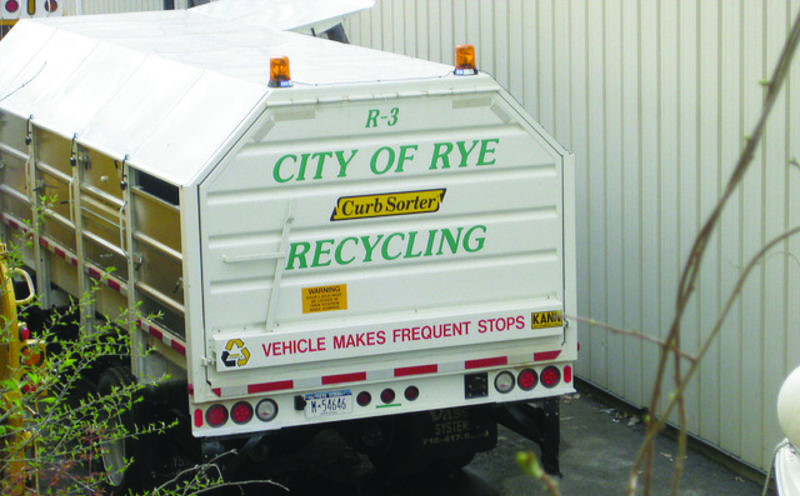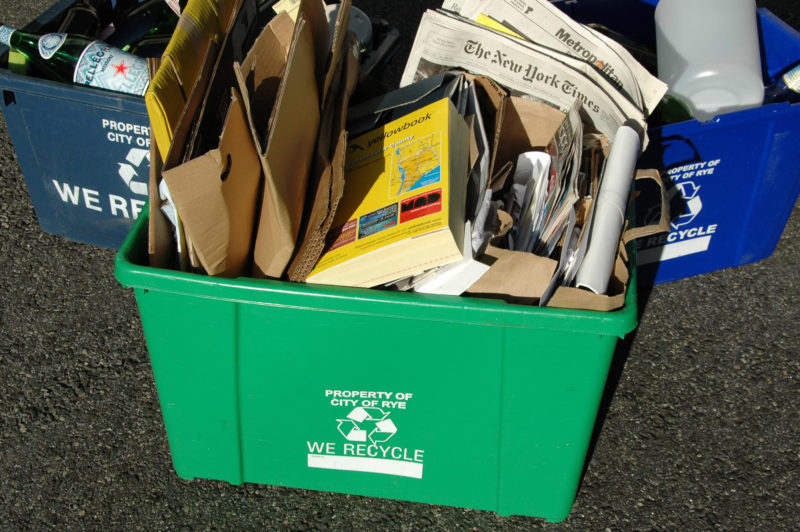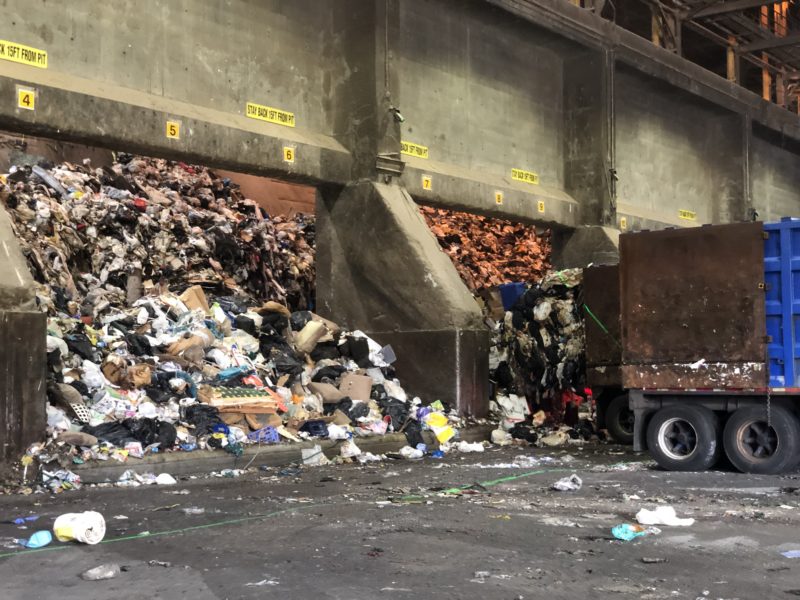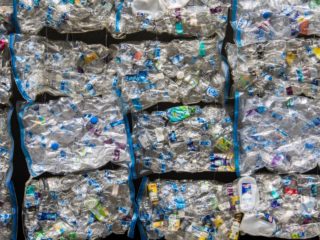Is recycling a waste of time? I was wondering this very question the other day while reading a Facebook post about recycling plastic. Someone had asked if it was possible to recycle plastic bags, bubble wrap, and other types of film. The short answer is yes. New York and many other states require large retail stores to make plastic film recycling bins available for this purpose.
This seems like a perfect way to purge all that single-use plastic waste we’ve accumulated. Right? Unfortunately, it’s not that simple. For the reasons I outline below, recycling is facing a crisis.
What’s the Problem?

A False Sense of Security
Recycling isn’t a perfect process, yet many of us don’t know that. The assumption is that if we faithfully place clean plastics and paper in the appropriate bin, they’ll be transformed into useful end products.
The reality is that most of these items don’t get recycled. The U.S. recycling rate for all materials hovers around 35%. An alarming statistic when you compare this rate to other industrialized nations, some of which boast rates as high as 60%. To make matters worse, Americans generate more than 12% of the world’s garbage. That’s a lot of trash that isn’t getting recycled.
The situation is even worse for plastic recycling, which has a dismal 9% recycling rate. In fact, the vast majority of the roughly 8.3 billion metric tons of plastic ever produced has either ended up in landfills, been incinerated, or left to pollute our environment.
The problem is that not enough of us know these alarming facts. Instead we’re encouraged to keep buying, buying, buying, and to not worry about waste disposal: recycling will take care of all that excess waste. This seemingly reassuring message is delivered via public information campaigns funded in large part by plastics industry groups. Their goal is to create a false sense of security that recycling efforts are environmentally effective while justifying our continued consumption habits.
Market Volatility
Until a few years ago, the vast majority of our recyclables were loaded onto ships and hauled off to China. That’s right, your plastic packaging, bottles, bags, and other recyclable detritus were schlepped across the Pacific to be hand sorted by low wage workers. That all changed in 2018 when China instituted its National Sword Policy banning the import of recyclables.
Keep in mind that recycling is a business and, just like any commodity, prices fluctuate. China’s National Sword Policy has plunged the recycling market into a tailspin. Plastics, for example, that once sold for about $300/ton are now virtually worthless. In fact, the price of virgin plastic is cheaper than the recycled flakes used to make consumer items.
With mountains of unwanted scrap piling up, local governments have responded in different ways, by sending recyclables to the landfill, refusing to accept certain categories of recyclables, imposing contamination fines on residents, or ending curbside recycling services.
Meanwhile, the plastics industry, buoyed by cheap gas prices, has taken advantage of the recycling crisis to produce more plastic. In the ongoing battle against (in particular, plastic) waste, it’s particularly disheartening to learn that the plastics industry is booming.
Recycling Confusion

A story to illustrate that public confusion about recycling rules can undermine the process, despite the best intentions: Driving down my street on a rainy morning last fall, I noticed a long line of recycling bins, filled with neatly tied bundles of paper and cardboard, placed curbside and ready for pickup.
The problem was that most of these bins had been put out the night before, and by now, after hours sitting in the cold rain, the paper was soaked through. What most residents didn’t realize was that wet paper is difficult to recycle and would most likely end up in the dump.
Is recycling a waste of time? It is when we don’t recycle right. This is just one of many instances where we unwittingly hamper the recycling process. The list of recycling dos and don’ts is long, and to add to the confusion, each community has its own set of rules. All of these mistakes increase the likelihood that recyclable materials don’t get recycled.
So … Is Recycling a Waste of Time?

So, is recycling a waste of time? It may seem that way, but recycling does serve a purpose when it’s done right. The problem isn’t necessarily the process, but the assumption that recycling is the best and only solution to our waste crisis. When you look at the facts, it’s clear that’s not the case.
Instead, we need to reorder our waste reduction approach to focus primarily on reducing the waste we generate in the first place. One simple step is to reduce the reliance on single-use disposables in favor of durable, reusable products. And, before tossing that item in the garbage, consider up-cycling or donating it.
Along with reducing and reusing, recycle, but recycle right. Proper disposal of recyclables will reduce contamination and ensure that items are actually recycled instead of dumped. Take a few minutes to learn the recycling process (see my post on this topic) and check out the Recycling Resources page to find where to recycle your waste.









